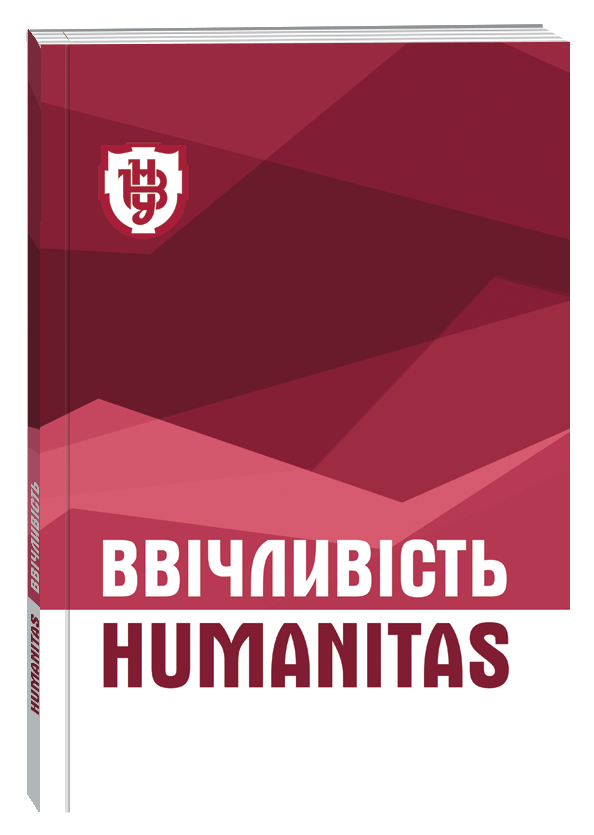НАПРЯМИ СОЦІАЛЬНОЇ ПІДТРИМКИ ВНУТРІШНЬО ПЕРЕМІЩЕНИХ ОСІБ З ІНВАЛІДНІСТЮ В ТЕРИТОРІАЛЬНІЙ ГРОМАДІ
DOI:
https://doi.org/10.32782/humanitas/2025.4.3Ключові слова:
громадські організації, внутрішньо переміщені особи, соціальна підтримка, територіальна громада, особи з інвалідністю, соціальні послуги, цифровізація, сільська громадаАнотація
Стаття присвячена аналізу соціальної підтримки внутрішньо переміщених осіб з інвалідністю у територіальних громадах із залученням громадських організацій як ключових суб’єктів цього процесу. У контексті повномасштабної війни в Україні саме поєднання статусу внутрішньо переміщеної особи та інвалідності створює унікальні виклики, що потребують комплексних підходів до соціальної інтеграції. Метою статті є окреслення основних напрямів підтримки, які здійснюють громадські організації, а також розкриття їхнього змісту, форм, методів та взаємодії із суб’єктами соціальної політики на рівні громади. У процесі дослідження узагальнено сучасні наукові напрацювання та практичний досвід діяльності неурядових організацій у сфері допомоги ВПО з інвалідністю. Виокремлено шість взаємопов’язаних напрямів підтримки: матеріально-побутовий, психосоціальний, правовий та адвокаційний, освітньо-професійний, культурно-громадянський і цифровий. Кожен із напрямів розкрито з позицій його змісту, конкретних форм і методів роботи, а також визначено коло суб’єктів, залучених до реалізації. Наголошено, що саме інтегроване поєднання цих напрямів забезпечує умови для подолання ізоляції, формування відчуття безпеки та належності до громади, а також сприяє розвитку соціальної згуртованості. Практичне значення дослідження полягає у можливості використання напрацьованих висновків у проектній діяльності громадських організацій, розробленні програм соціальної інтеграції ВПО з інвалідністю та налагодженні міжсекторальної взаємодії на рівні територіальних громад. Особливий акцент зроблено на цифровізації як інструменті підвищення доступності послуг у сільських громадах. Отримані результати також мають перспективу застосування у формуванні державної політики соціальної підтримки вразливих категорій населення в умовах війни та післявоєнного відновлення. Досвід ініціатив, реалізованих, зокрема, Фондом Східна Європа, підтверджує значення поєднання соціальної підтримки з розвитком організаційної спроможності та цифрових рішень для підсилення інклюзивності громад.
Посилання
Актуальні питання соціальної роботи : навч. посіб. / О. Денисюк та ін. ; ред.: О. Епель, Т. Лях, І. Силантьєва. Ужгород : РІК-У, 2023. 420 с. URL: https://elibrary.kubg.edu.ua/id/eprint/47338/ (дата звернення: 27.07.2025).
Гунько С., Лях Т., Карпенко О. Публічний простір як інструмент розвитку соціальної згуртованості громади. Humanitas. 2023. № 2. С. 218–224. URL: https://doi.org/10.32782/humanitas/2023.2.32 (дата звернення: 27.07.2025).
Дуля A., Лехолетова M. Аналіз діяльності державних та недержавних організацій щодо надання соціальних та медичних послуг ВПО, які живуть з ВІЛ в Україні. Social work and education. 2025. № 12 (1). С. 19–33. URL: https://doi.org/10.25128/2520-6230.25.1.2 (дата звернення: 27.07.2025).
Дуля A., Лехолетова M., Лях T. Особливості соціальної роботи з особами з інвалідністю внаслідок війни. Науковий часопис НПУ імені М. П. Драгоманова. 2024. № 98. С. 42–46. URL: https://doi.org/10.31392/udu-nc.series5.2024.98.08 (дата звернення: 27.07.2025).
Дуля А., Лютий В. Досвід представництва інтересів внутрішньо переміщених осіб недержавними організаціями. Humanitas. 2023. № 3. С. 15–22. URL: https://doi.org/10.32782/humanitas/2023.3.3 (дата звернення: 27.07.2025).
Карпенко О., Спіріна Т., Лехолетова М. Міждисциплінарна взаємодія у наданні соціальних послуг вразливим групам населення. Соціальна педагогіка: теорія та практика. 2025. № 1. С. 42–50. URL: https://doi.org/10.12958/1817-3764-2025-1-42-50 (дата звернення: 27.07.2025).
Лехолетова M., Лях T., Сапіга С. Соціально-педагогічна підтримка батьків дітей із особливими освітніми потребами в умовах інклюзивного навчання. Social work and social education. 2024. № 1(12). С. 89–96. URL: https://doi.org/10.31499/2618-0715.1(12).2024.305129 (дата звернення: 27.07.2025).
Лехолетова М., Дуля А., Спіріна В. Інтеграція внутрішньо переміщених осіб у приймаючі громади. Соціальна робота та психологія: освіта і наука. 2025. № 1. С. 30–36. URL: https://doi.org/10.32782/3041-1351/2025-1-5 (дата звернення: 27.07.2025).
Спіріна Т., Котелевець А., Дуля А. Огляд досвіду проєктної діяльності неурядових організацій щодо соціальної підтримки внутрішньо переміщених осіб. Науковий журнал Хортицької національної академії. 2025. № 12 (1). С. 107–110. URL: https://doi.org/10.51706/2707-3076-2025-12-19 (дата звернення: 01.07.2025).
Шкуро В., Ворона О. Впровадження доступності та інклюзивності в процесі розвитку громад та територій України. Науковий вісник Ужгородського університету. Серія: «Педагогіка. Соціальна робота». 2023. № 1(52). С. 242–246. URL: https://doi.org/10.24144/2524-0609.2023.52.242-246 (дата звернення: 27.07.2025).
##submission.downloads##
Опубліковано
Як цитувати
Номер
Розділ
Ліцензія

Ця робота ліцензується відповідно до Creative Commons Attribution 4.0 International License.







